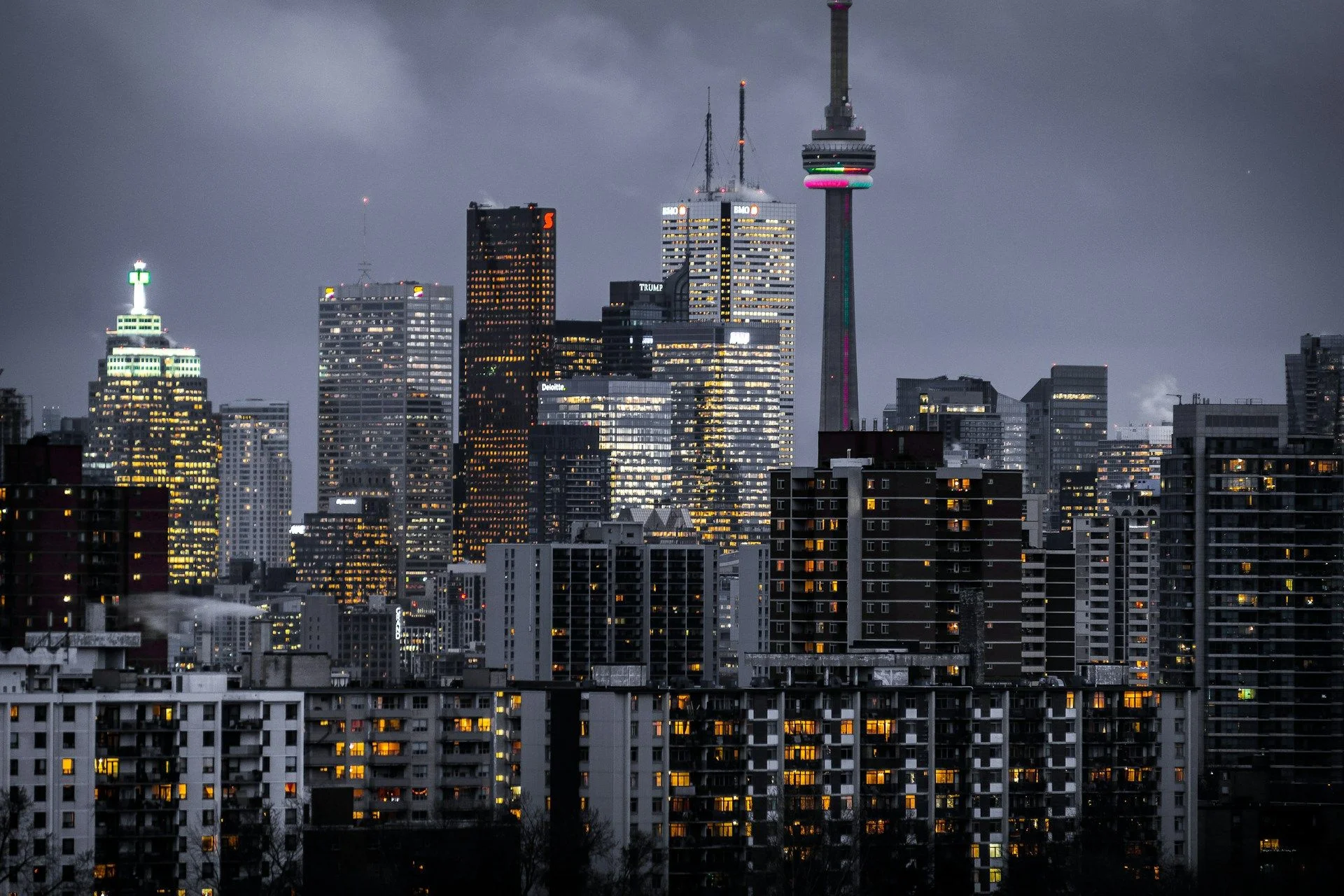Offres immobilières secondaires exclusives à TorontoCentre financier avec un rythme vibrantmulticulturel

Meilleures offres
à Toronto
Avantages de l'investissement dans
l'immobilier au Canada

Guide pour les investisseurs immobiliers au Canada
lisez ici
Toronto, Vancouver et Montréal demeurent des pôles d'investissement avec une solide appréciation du capital.
Le Canada offre une pleine propriété, des outils de financement et une inscription des titres sécurisée.
Villes mondiales avec une croissance constante
L'immigration, l'afflux d'étudiants et la stabilité économique créent une demande locative résiliente.
Écosystème juridique et financier solide
En savoir plus
Forte demande locative des nouveaux arrivants et des professionnels
Le Canada offre une pleine propriété, des outils de financement et une inscription des titres sécurisée.
Villes mondiales avec une croissance constante
L'immigration, l'afflux d'étudiants et la stabilité économique créent une demande locative résiliente.
Écosystème juridique et financier solide
En savoir plus
Forte demande locative des nouveaux arrivants et des professionnels

Articles utiles
et recommandations d'experts
Secondary Real Estate in Toronto: Demographic Drivers and Market Pulse
Toronto’s secondary real estate in Toronto market reflects the city’s status as Canada’s largest metropolis and a global magnet for newcomers, students, and corporate talent. With over 3 million residents in the city proper—and more than 6 million across the Greater Toronto Area—demand for pre-owned homes remains intense in both established enclaves and emerging corridors. Investors and end-users find a range of resale assets: century-old Victorian and Edwardian “bay-and-gable” houses in Cabbagetown and Riverdale; mid-century bungalows and split-levels in East York and Leaside; high-rise condominium suites along Yonge Street, Eglinton, and the lakefront; and adaptive-reuse lofts in Liberty Village and the West Don Lands. These resale properties offer immediate occupancy, mature street trees, and community fabric—advantages increasingly prized as new-build projects face longer approvals and rising construction costs. Rental demand is sustained by students at the University of Toronto and Ryerson, professionals in the Financial District and burgeoning tech clusters in King West and the Discovery District, and families seeking proximity to highly ranked public and private schools.
Transit‐Oriented Corridors and Neighbourhood Evolution
TTC subway extensions and GO Transit improvements have reshaped Toronto’s resale landscape. Along the Eglinton Crosstown LRT, resale condo towers in Mount Pleasant West and Oakwood Village now command premiums for units within a 500-metre walk of future stations. Similarly, the Finch West LRT has sparked renewed interest in mid-1990s apartment blocks and adjacent bungalow subdivisions in North York. In the east end, plans for the Eglinton East LRT and SmartTrack upgrades fuel investor interest in pre-2000 townhomes and low-rise blocks near Kennedy and Victoria Park. These transport investments reduce commute times to York University, downtown offices, and major hospitals, boosting rental yields and driving resale values upward by 8–12% in corridors previously overlooked.
Regulatory Framework and Value‐Add Pathways
Ontario’s policy environment shapes secondary real estate in Toronto in key ways. The Non-Resident Speculation Tax (15% on top of standard land transfer tax) and the municipal land transfer tax (up to 2.5% of purchase price) require foreign investors to factor holding and closing costs into acquisition strategies. Once acquired, resale homes benefit from clear title processes under the Land Transfer Tax Act and robust strata governance in condominium communities. Municipal incentive programs—such as the Toronto Heritage Grant for façade conservation and the Canada Greener Homes Grant—offset a portion of restoration and deep-energy retrofits. Investors unlock value through heritage-sensitive renovations: restoring brick façades and original woodwork in Cabbagetown rowhouses; converting underused attics into legal second suites under新的Accessory Dwelling Unit bylaws; and modernizing mid-century kitchens and bathrooms with European cabinetry, quartz countertops, and frameless glass showers to command 10–15% higher rents. In condo towers, turnkey refreshes—engineered hardwood flooring, designer light fixtures, and integrated smart-home thermostats—can accelerate lease-up times and support rental rates 5% above building averages.
VelesClub Int. delivers end-to-end expertise for navigating Toronto’s secondary real estate in Toronto market. Our approach begins with a custom neighbourhood analysis—leveraging proprietary demographic and transit-proximity models—to pinpoint both listed and exclusive off-market resale opportunities aligned with your yield objectives and lifestyle needs. We coordinate rigorous legal due diligence with the Ontario Land Registry Office, ensuring clear title transfers, efficient land transfer tax filings, and compliance with heritage, zoning, and condo-declaration requirements. For buyers pursuing renovation-driven returns, our in-house design and project management teams develop sympathetic upgrade roadmaps—from heritage-grade masonry restoration in historical districts to energy-efficient retrofit packages and ADU conversions in mid-century suburbs—and oversee certified local contractors to guarantee on-time, on-budget delivery. Financing solutions are structured through partnerships with Canada’s leading banks, offering competitive mortgage products, bridge-loan facilities for pre-closing renovations, and foreign-exchange hedging services. Post-acquisition, our property management division handles tenant sourcing, lease negotiation, maintenance coordination, and transparent performance reporting via a secure online portal—ensuring your Toronto investment thrives as both a refined urban residence and a sustainable, long-term asset.